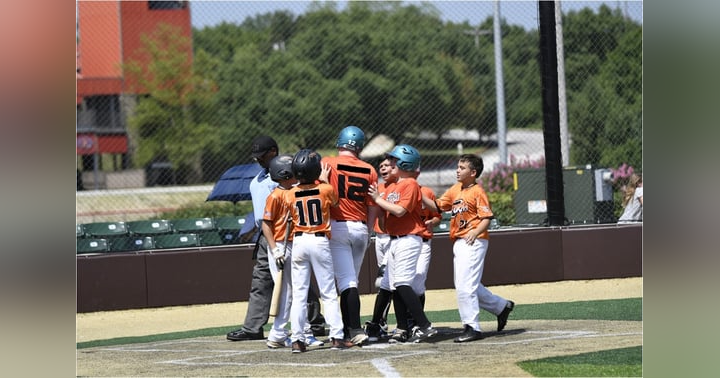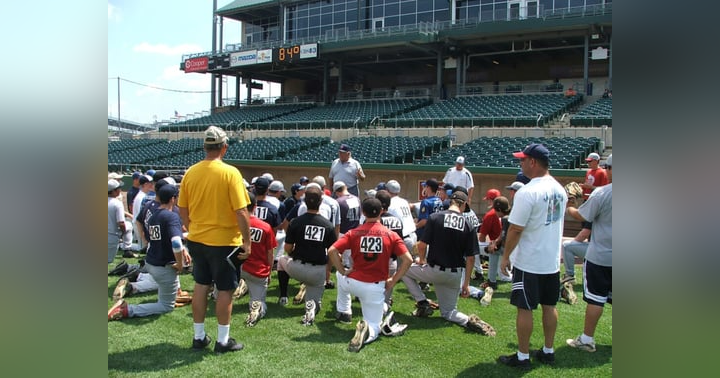How a Coach is Made

The Path to Becoming a Baseball Coach
How does someone become a coach? Is it the same for all coaches? I read and listen to many interviews with high school, college and professional coaches and it always comes up in the conversation. How did you get started?
The answers, although not the same, are very similar. It was said to me a long time ago by my older brother Joe, a well-respected youth baseball coach, before his passing in 2016 .... "All baseball players' careers eventually come to an end, it's just a matter of when." Some end before high school, some after. Others end after college and/or minor league ball. I'm sure that you get the idea. Most coaches come from the ranks of having played some form of higher-level baseball. Their playing days are over, but they still have a passion for the game. They want to stay involved. They start the journey to become a coach.
Former high-level players are excellent candidates for coaching positions because of their knowledge of the game and they have been around coaches for most of their lives. They know the game. They have well deserved credibility. The opportunity to be mentored under seasoned coaches transforms former players into well rounded coaches themselves. Some work under several different coaches and learn alternate approaches, disciplines and cultures which enables them to form their own style and philosophy of coaching.
But ... what if there is a fork in the road? What if the path is not as clear.
My story is a little different. I never played a high school varsity sport. I never tried out. It's not because I wasn't capable- times were different back in the 1960's and 70's. There wasn't as much emphasis on sports back then as there is today. I had always been a starting player and even a captain on teams that I did play on. I like to believe that I was a decent athlete but, for me, the frustrating part is that I will never know.
OK ... enough of me crying!
I never lost my passion for the game. I still wanted to be involved. I had my first coaching opportunity in the mid-1980's with a Babe Ruth League team, ages 13-15. My second was with a Senior Babe Ruth team, high school juniors and seniors. Needless to say, both instances were complete disasters. I had absolutely no clue as to what I was doing. I thought that this was really the end and that my only involvement would be in the form of watching baseball on TV or going to an occasional game.
Fast forward to around 2005. My son was ready to begin his playing days in our local Cal Ripken recreation league. I signed up to be his tee-ball coach. I knew that the approach to teaching baseball had changed drastically so I realized that I had better "hit the books" and learn as much as I could to get these players started in the right direction. I tripped and stumbled around for about four years, learning as much as I could. I made a lot of mistakes but learned from each one. It wasn't as much about learning how to play the game, it was about learning what it meant to be a coach. I was driven to be the best coach that I possibly could be.
In 2009, I was entrusted to be the head coach for my son's Cal Ripken League all-star team. I was truly honored to be chosen, but now the stakes got higher. I had to be better. The league assigned an assistant coach to me, a fellow named John Arceri. He wasn't much of a baseball guy; he was a dad volunteering to help. I did not know John, but he would become a great friend and someone that I learned from tremendously. We spent the next eight years coaching together. John taught me to see the game from the perspective of a parent and-as we all know in these times-if you can avoid problems with parents, your life as a coach will be much easier and a lot more fun. He taught me to be organized. He also taught me to communicate effectively with the team. I'm sure that he doesn't even realize all of this, but he meant a lot to me as a coach.
In 2015 we took our team with us to join the newly formed Cadets Baseball Academy. This move turned out to be another big step in my coaching career. I was now coaching high school level players, preparing them to make their next step into the world of college baseball. I needed to learn more. Angel Lugo is a former professional baseball player and the Owner and Director of Player and Instructor Development of the Cadets. He is also the New York State Coordinator for USA Baseball's North Atlantic NTIS. He is certified by Brent Pourciau for the Top Velocity Pitching Program and played a tremendous role in the development of Cadet Lenny Torres, Jr who was drafted in the first round by the Cleveland Indians in the 2018 MLB player draft. Angel has been instrumental in the advancement of my coaching career. Finally, I was learning from a real baseball guy! I was learning the intricacies of playing the game, position by position. I worked to soak up as much knowledge as I could. I was interacting with college coaches, learning what they looked for in high school players, so I could prepare my players to move on.
I applied for the head JV baseball coach position at Archbishop Stepinac High School in White Plains, New York in Fall of 2018. Surely, in my mind, I would not be considered for this position. Most high school coaches have played college baseball or have many accolades from their high school playing days. I had no playing experience. I failed to realize that although my path was not typical ... I was a baseball coach. I had two interviews with Head Varsity Coach and Assistant Athletic Director, Keith Richardson. I felt good about our discussions and anxiously awaited his decision. I am proud to say that I am the JV Head Coach at Stepinac High School.
I never thought that I would ever get the chance to coach at the high school level. I never thought that I would coach at any level other than recreational baseball. It seems to me that my journey is following the same pattern as a young baseball player. Tee ball, minors, majors, all stars, travel ball and now high school. If I stay on top of my game and work hard, who knows where this will end?
Does this mean that my development as a coach is over? Does this mean that I have reached my goal? Not at all. I believe that in the same way I expect my players to work hard and become the best that they can be, I too must continue to work hard to get better at my position as a coach. I am a member of the ABCA and have completed my coursework for my ACE "C" certification through USA Baseball Sports Development. I also attended the ABCA Convention in Dallas in January to further my baseball education. Beyond that, I will keep studying and learning as much as I can to stay sharp.
The path to becoming a baseball coach is not an easy one. There are different ways to get there. One thing, however, remains constant: baseball is continually evolving, and you must put in the work to achieve the results that you desire.





